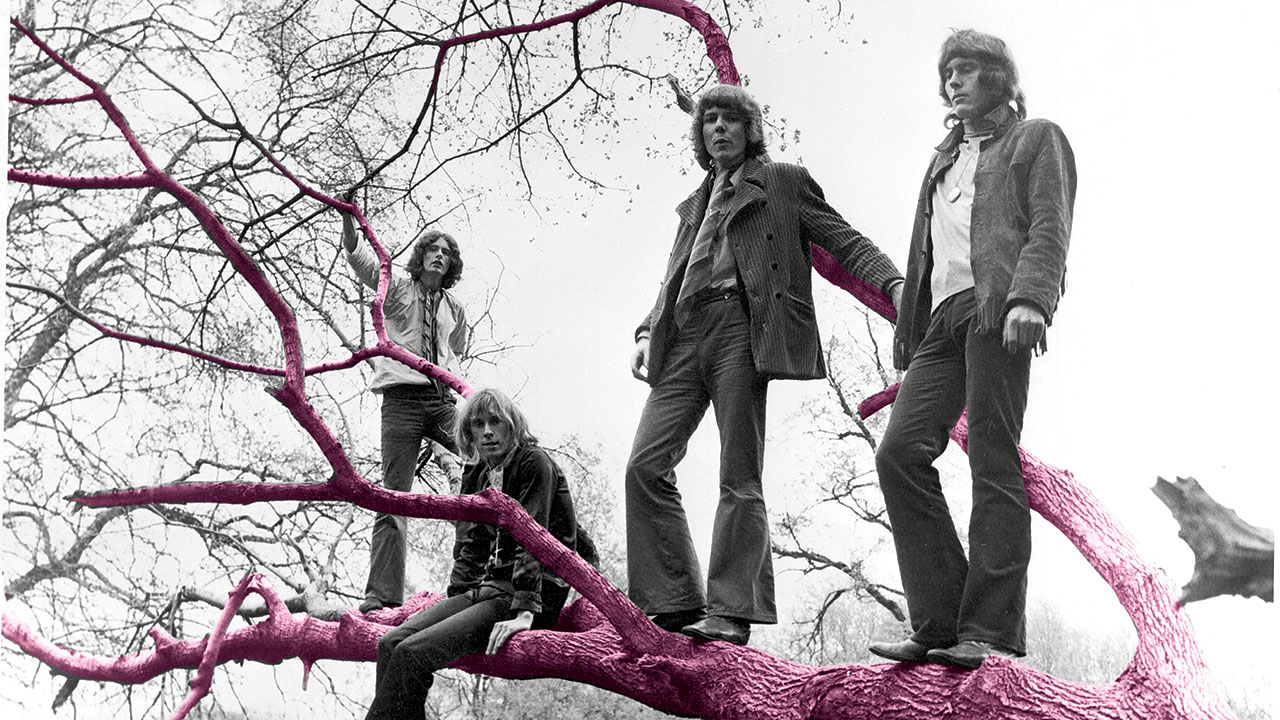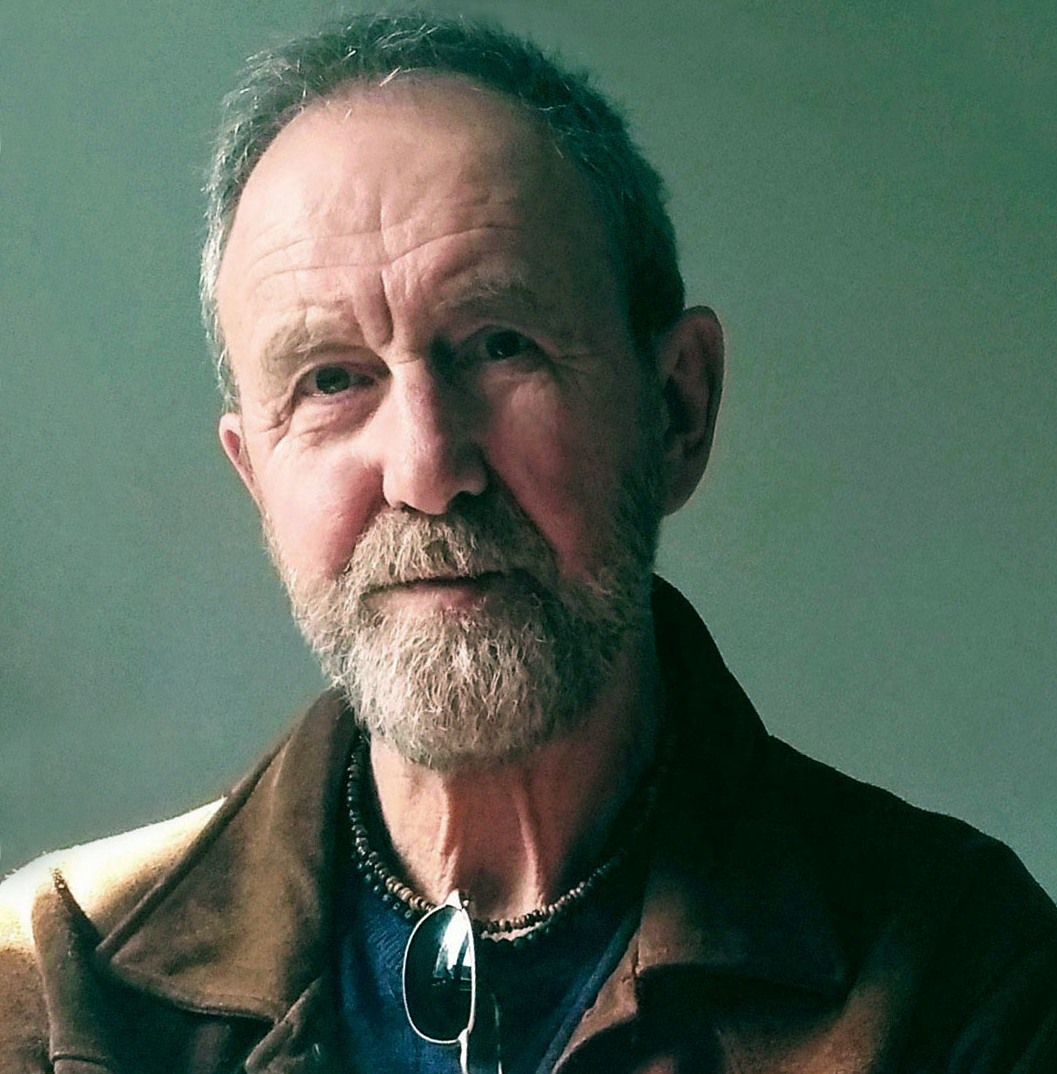“We were virtually given free rein. In fact, they spent so much money on studio time, there was very little left for promotion”: How Caravan’s In The Land Of Grey And Pink became an unheralded prog classic
The leading lights of the Canterbury Scene’s third album is a genuine masterpiece – but pitifully few people heard about it on its arrival

Select the newsletters you’d like to receive. Then, add your email to sign up.
You are now subscribed
Your newsletter sign-up was successful
Want to add more newsletters?
In September 1970 Caravan went into the studio to begin recording their third album. In December they emerged with what would be not only the greatest album of their career, but also a progressive rock classic. In 2010 the band told Prog about the making of In The Land Of Grey And Pink.
The feelgood British summer of 1970 was one of hot, sunny days, with Mungo Jerry’s In The Summertime the defining song of its soundtrack. But it was also a season in which, along with the good vibes and warm zephyrs, some particularly chill winds blew through the rock music scene.
More than half a million revellers had smoked, toked, tripped and generally let it all hang out at the sun-kissed Isle of Wight Festival, with a line-up that featured The Doors, Free, The Who and Jimi Hendrix. Nevertheless, the event’s yang was crushed by the yin of events that included The Beatles breaking up and, on September 18, the bombshell that was Hendrix’s death.
On the upside in 1970, the 747 airplane had its first commercial flight, the Beatles released their final album Let It Be – and Caravan recorded their third album. A four-piece from the sleepy cathedral city of Canterbury, the decidedly English progressive rock band were major players in what came to be known as the Canterbury Scene. With three strong songwriters and two contrasting lead vocalists, they’d released two albums of highly original, inventive, accomplished and engaging music; yet outside the coterie of scene fans they remained largely unknown, their records acclaimed but not selling in numbers.
Caravan were arguably at a crossroads in late 1970. They may have been talented, but they were also skint. Their finances had improved little since two years earlier when, with not much more than fluff in their pockets, they’d spent the summer living in tents, until autumn’s falling temperatures forced them to seek shelter with friends. It was a difficult time for the Canterbury Scene’s de facto leaders.
Still rich in terms of ideas and creativity, they drove their van to London and lugged their equipment into the creaky Decca Studios in West Hampstead in September 1970. Later, on a December morning, they emerged from the smoky cocoon of AIR studios onto Oxford Street, clutching the master tapes of what would be not only the greatest album of their career, but a progressive rock classic: In The Land Of Grey And Pink.
Their second record, If I Could Do It All Over Again, I’d Do It All Over You, had been released earlier in 1970, and much of it had been written by guitarist/vocalist Pye Hastings, who’d had little left in terms of fully-formed songs for the third volume. The only complete piece he contributed to the new album was the jaunty Love To Love You – although he, like his bandmates, contributed ideas for other people’s songs.
Sign up below to get the latest from Prog, plus exclusive special offers, direct to your inbox!
Since Hastings had also written the lion’s share of Caravan’s 1968 self-titled debut, the others had material in their lockers. Bassist/vocalist Richard Sinclair brought along the dreamy, exquisite Winter Wine (“probably the best song Richard has ever written,” say both Hastings and keyboard player Dave Sinclair), along with the song that became the title track; plus the bouncy Group Girl, later changed to Golf Girl and chosen to open the album. (The girl in question was Richard’s soon-to-be wife Trisha).
“I believe we had all the music for the album before we went into the studio,” Dave Sinclair recalls, “although I think some of the lyrics were left until the very last moment. In those days we wrote the music first and the lyrics later. On my Nine Feet Underground I wrote the lyrics for the Disassociation part and Richard sang that. For the second part, Love’s A Friend, I was having trouble with the lyrics, and Pye helped me out quite considerably, then sang the song. It was a higher part, and Pye had a higher voice than Richard.
“Nine Feet Underground had been individual pieces, but with continually playing them through, and because each piece was only about five minutes long, I found it quite interesting to join bits up. I think it evolved – I’d completely sorted out the idea of doing one long number before we went into the studio. I was living in a basement flat at the time that was nine feet under ground level.”
Previously the band had produced themselves; but for this, their second album for Decca Records and first for its new imprint Deram, they were teamed with David Hitchcock, an art department employee and aspiring producer who’d worked on East Of Eden’s Snafu and hit single Jig-A-Jig. His genuine enthusiasm for Caravan and thrusting desire to work with them got him on board.
Dave Sinclair says: “For our first two albums we didn’t have somebody who assumed a real leadership role and had that big, important strong influence on what we should be doing. David would tell us to try it again if he felt something wasn’t right, or try playing something a different way, or whatever. He’d give us free rein, but he made sure he was getting what he wanted, basically. He was quite a hard taskmaster, which was what we needed.”
If there was a big goof it needed major surgery. Trying to play a 22-minute number in one go was a lot of pressure
Dave Sinclair
After three days of waiting around (“We just went to the pub,” admits Sinclair) while a suitably punchy sound was tweaked out of drummer Richard Coughlan’s newly acquired Hayman kit, it was down to business. Although most of what would eventually make up the first side of the album – Golf Girl, Winter Wine, Love To Love You and In The Land Of Grey And Pink – was recorded later at George Martin’s recently opened state-of-the-art AIR studios, prototype versions were the first fruits of the early Decca sessions.
One of those was a version of Winter Wine without lyrics, which got stuck with the title It’s Likely To Have A Name By Next Week and appeared on the 2001 expanded reissue of the album. Another bonus from the same sessions was Group Girl with dummy lyrics. Nine Feet Underground came together at Decca too. The completed tour de force, which was to take up the whole of side two, distilled the very essence of Caravan into 22 minutes and 40 seconds that would come to be one of the band’s defining moments.
“In those days, if there was a big goof somewhere along the line, it needed major surgery to put it right,” Sinclair says. “The fact of trying to play a 22-minute number in one go was – well, a lot of pressure. So we recorded it in sections and then David Hitchcock spliced it all together. It’s the only way we could do it. For the whole album the recordings were done pretty much as live, apart from the odd overdub and solos that went on afterwards.”
Caravan didn’t suffer any interference from the label’s A&R department; no one applied pressure to come up with singles, passed judgement on early takes, or reminded the band that studio time was money. On the contrary, Decca seemed happy to keep stumping up the money for an unusually lengthy period of recording.
AIR was about a four o’clock in the morning finish. We’d go to the Speakeasy and drive back to Canterbury at dawn
Pye Hastings
“That was the amazing thing about it – we were virtually given free rein,” Sinclair says. “It seemed like we had bags of time in the studio. In fact, I think that what happened was that they spent so much money in studio time that there was very little left for promotion.”
They worked mainly in the daytime at Decca, and the night shift at AIR (“because it was above the Peter Robinson department store in Oxford Street, so you couldn’t record that much during the day,” Hastings explains), and mostly kept their noses to the grindstone.
“David Hitchcock was a very good influence in that respect,” says Sinclair. “The only going out, really, was to get equipment or something; there wasn’t much partying.” Even puffing on a fat one was employed as a creative aid rather than simply to get out of it. “It was just so I could focus on the music. I never smoked for recreation.”
Hastings remembers that, rather than staying in London and enjoying the nightlife and diversions of the capital, the country boys drive the van 60 miles back to Canterbury most nights. “After Decca we’d sometimes go the pub and get pissed,” he says. “AIR was about a three or four o’clock in the morning finish, and occasionally we’d go to the Speakeasy – Dave Hitchcock was a member – and drive back at dawn.”
After the final overdub, the final splice and the final mix, Caravan sat back and, for the first time, listened to their new album in full. “And I absolutely loved it,” Hastings says. “After producing ourselves, it was a real eye-opener to work with Dave. If you’re on your own you can be a bit self-indulgent – everyone bringing up their own volume and things. You need some sort of control, and he was brilliant. I played it about a year or so ago, after not hearing for at least 10 years, and I was quite impressed.”
We’d reached a zenith in a way. All bands try to get to a situation like that. We’d made it
Dave Sinclair
Sinclair remembers: “We thought, ‘Well, we like it’. None of us were thinking, ‘I hope it’s going to sell lots, and we need to get a manager who’s going to promote it.’ We didn’t even have a meeting – we were just, ‘Oh, that’s alright, isn’t it?’
“It really hit me when I was in a late-night club in Canterbury called the Beehive. Not long after the album was released, I was in there and they put it on very loud. I think I’d had a little smoke, and I sat back and thought, ‘Wow – this sounds really good!’”
In The Land Of Grey And Pink was released in April 1971, with its now iconic gatefold sleeve featuring a beautiful, Tolkienesque painting by Anne Marie Anderson. “We all just loved that so much,” Sinclair says, “and it seemed so appropriate.” It arrived with barely an announcement, let alone a publicity fanfare. Had Decca not been so easy with studio-time, perhaps – as Sinclair said – there might have been a PR budget. Sadly, the label appeared to treat the record with the manner afforded to an unwanted pet after Christmas.
But despite its muted arrival and – and probably partly as a result – its absence from the charts helped it become the fans’ favourite. Ask a music fan to name a Canterbury Scene album and – if they can name one at all – it’s likely to be In The Land Of Grey And Pink. Ask those in the know to name the scene’s best album, and you’re likely to get the same answer.
“Certain things just gel, don’t they?” Sinclair reflects. “You could say it’s in the planets or it’s in astrology. It’s in many things. The timing of it was just right. David Hitchcock coming along was just right. the music that we got together at that time, the way we progressed, was good. We’d reached a zenith in a way. All bands try to get to a situation like that. We’d made it.”
Classic Rock’s production editor for the past 22 years, ‘resting’ bass player Paul has been writing for magazines and newspapers, mainly about music, since the mid-80s, contributing to titles including Q, The Times, Music Week, Prog, Billboard, Metal Hammer, Kerrang! and International Musician. He has also written questions for several BBC TV quiz shows. Of the many people he’s interviewed, his favourite interviewee is former Led Zep manager Peter Grant. If you ever want to talk the night away about Ginger Baker, in particular the sound of his drums (“That fourteen-inch Leedy snare, man!”, etc, etc), he’s your man.
You must confirm your public display name before commenting
Please logout and then login again, you will then be prompted to enter your display name.






